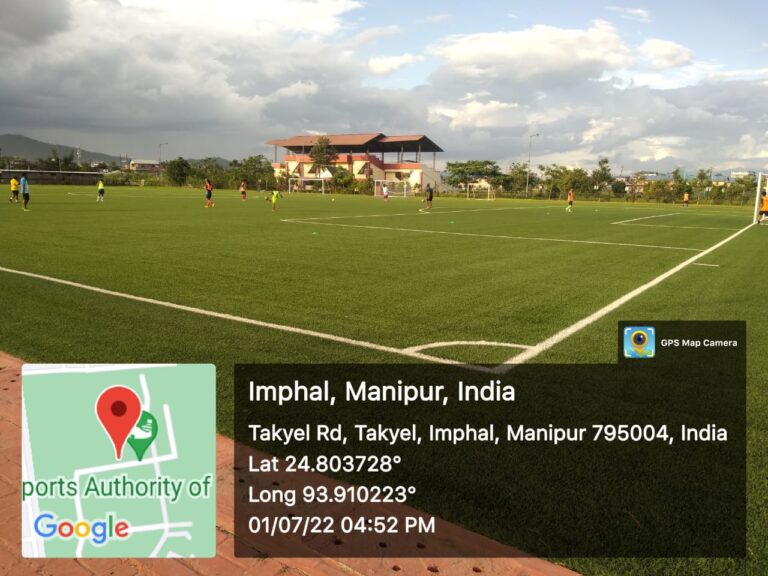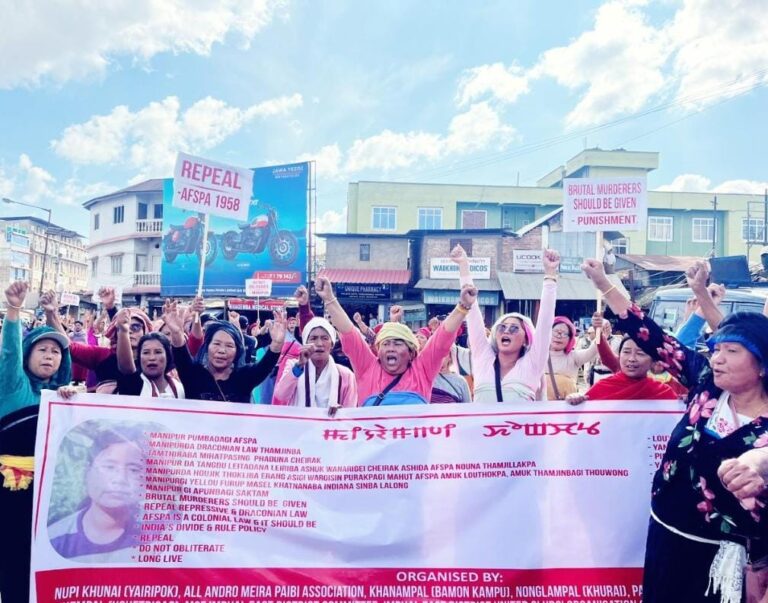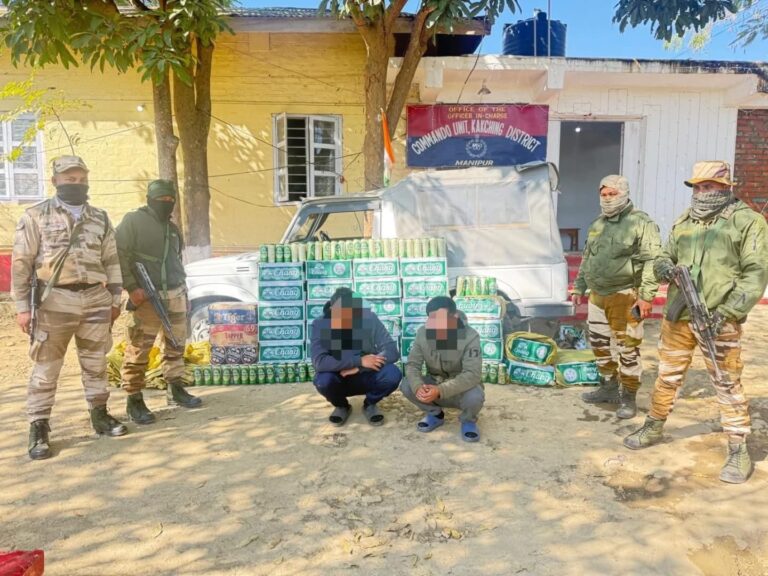Manipur Proscribed KCP Cadre Arrested in Imphal East: Unraveling the Incident and Its Implications
Summary
In a significant security operation in Imphal East, authorities arrested a cadre belonging to the proscribed KCP, a banned outfit in Manipur. This arrest highlights the persistent challenges faced by security agencies in curbing extremist activities in the region. The incident not only reflects the stringent measures being taken to maintain law and order but also raises crucial questions about the future of insurgency and security management in Manipur.
Long Article
Introduction
Ever wondered how a single arrest can ripple through the corridors of regional security and send shockwaves across communities? In the heart of Manipur, an arrest in Imphal East has drawn attention as authorities nabbed a cadre from the proscribed KCP—a banned group notorious for its extremist activities. If you’ve been following the news from the Northeast, you know that every such operation is a battle in a long war against insurgency and extremism. Today, let’s peel back the layers of this incident, explore its background, and understand what it means for Manipur and its quest for peace.
Background: Understanding the KCP and Its Banning
Before we dive into the details of the arrest, it’s essential to get a clear picture of who the KCP are and why they have been banned. The KCP, short for [Kangleipak Communist Party] (or another similarly named extremist outfit), has been a thorn in the side of the state for years. Often involved in activities that destabilize the region, their actions have prompted the government to take a firm stand by proscribing the group.
Who Are the KCP?
The KCP is not just any extremist group. They are considered a significant security threat in Manipur due to their involvement in activities that range from armed insurrections to subversive operations. Over the years, they have been linked with several incidents that have jeopardized public safety and security. This background sets the stage for understanding why even a single arrest sends a strong message to both the militants and the public.
Why the Ban?
Banning the KCP was a necessary step by the state to curb the influence of extremist ideologies. When a group’s activities pose a risk to peace and public order, it becomes imperative for the government to intervene decisively. The proscription of the KCP is a signal to all would-be insurgents that extremist actions will not be tolerated, and those caught engaging in such activities will face severe consequences.
The Arrest: A Closer Look
Now, let’s zoom in on the event itself. On [specific date if known, otherwise “recently”], security forces in Imphal East conducted a well-coordinated operation that led to the arrest of a KCP cadre. This operation, executed with precision, underscores the robust law enforcement efforts underway in the region.
How the Arrest Unfolded
Imagine a chess game where every move is calculated—this was the scenario in Imphal East. The arrest was the culmination of months of intelligence gathering, surveillance, and meticulous planning. Law enforcement agencies, equipped with reliable information and strategic insights, targeted a suspected hideout of the KCP cadre.
As the operation unfolded, teams moved in swiftly, leaving no room for error. The cadre, caught in the act, was taken into custody without a violent confrontation—a testament to the efficiency and preparedness of the security forces. It’s akin to a well-timed interception in a high-stakes game of hide and seek, where the authorities not only locate but decisively apprehend the suspect.
What Does This Arrest Mean?
At first glance, one might think, “It’s just one arrest.” But in the context of insurgency and extremist networks, every arrest is a strategic win. This incident disrupts the operational capabilities of the KCP and sends a strong message that the government is committed to rooting out extremist elements. It also acts as a deterrent to others who might consider joining or supporting such groups.
The Implications for Regional Security
This arrest is more than just a headline—it has far-reaching implications for the security landscape in Manipur. Let’s explore some of these implications in detail.
Strengthening the Security Apparatus
The successful apprehension of a KCP cadre highlights the effectiveness of current security measures in Manipur. It reassures the public that the state is actively working to neutralize threats. When law enforcement agencies demonstrate their capability to act swiftly and efficiently, it boosts community confidence and reinforces the authority of the government.
Deterrence of Future Extremist Activities
Consider the arrest as a stone thrown into a still pond—the ripples extend far beyond the point of impact. The message is clear: extremist activities will be met with prompt and decisive action. For potential militants or sympathizers, the risk of being caught and penalized increases, thereby serving as a deterrent for future illegal activities.
Impact on Insurgent Networks
In the larger scheme of insurgency, targeting a cadre from a banned group like the KCP can have a cascading effect. It disrupts the network, creates mistrust among its members, and weakens the organization from within. The authorities’ relentless pursuit not only weakens the group’s operational strength but also complicates its efforts to recruit and sustain its activities.
Community Reactions and Social Impact
News of such arrests doesn’t just circulate among security agencies—it resonates deeply with the local community. People in Manipur have long grappled with the dual challenges of insurgency and the constant threat of violence. So, what are the community’s sentiments following this development?
A Sense of Relief and Reassurance
For many residents, this arrest brings a breath of fresh air. It reinforces the belief that the government is not sitting idle while extremist elements roam free. The arrest is seen as a proactive step that enhances the overall safety of the community. Just as a neighborhood watch gives residents a sense of security, effective law enforcement instills confidence in the system.
Skepticism and the Call for Continued Vigilance
However, not everyone is entirely reassured. Some community members remain cautious, wary of the possibility that this arrest might be just a drop in the ocean of a larger insurgency. They stress the importance of continuous vigilance and comprehensive measures to ensure that such extremist activities are permanently eradicated.
Impact on Local Dynamics
The arrest also has socio-political ramifications. It prompts debates on the effectiveness of the state’s counter-insurgency measures and encourages local groups to participate more actively in community safety initiatives. In this light, the event becomes a catalyst for a broader discussion on security, governance, and the rights of citizens to live free from the fear of extremist violence.
Government and Security Agency Responses
When an operation of this scale unfolds, the response from the authorities is as crucial as the act itself. Let’s delve into how the government and security agencies have addressed this incident.
Official Statements and Reassurances
Shortly after the arrest, officials issued statements affirming that the proscription of extremist groups like the KCP is being enforced rigorously. These statements not only praised the swift action of the security forces but also reiterated the government’s commitment to maintaining peace and order. In their view, every successful operation is a building block toward a safer, more stable Manipur.
Plans for Future Operations
Beyond immediate statements, there is an indication that this arrest is part of a larger, ongoing effort to dismantle extremist networks. Authorities have hinted at more operations in the pipeline, emphasizing that they are constantly refining their strategies to counter insurgency. The message is clear: as long as extremist elements exist, the security apparatus will remain on high alert.
Collaborative Efforts
It’s worth noting that such operations are rarely the work of a single agency. Instead, they represent the collaborative efforts of multiple departments—intelligence, local police, and specialized security forces—all working in unison. This integrated approach not only ensures a higher success rate but also lays the foundation for future collaborations aimed at curbing insurgency on all fronts.
Legal Proceedings and the Road Ahead
Following the arrest, the legal process now takes center stage. This phase is critical for ensuring that justice is served and that the rule of law prevails.
The Legal Battle
The arrested cadre is expected to face charges under laws related to terrorism and insurgency. Legal proceedings in such cases are often complex, involving a thorough investigation, evidence gathering, and trial processes that can stretch over time. The objective is not merely to punish but also to dismantle the network by cutting off its operational resources and support systems.
Setting a Precedent
Successful legal action against members of banned groups sets a precedent for future cases. It sends a strong message that the judicial system will not tolerate extremist behavior and will hold offenders accountable. This precedent is crucial for reinforcing the legal framework against insurgency and ensuring that the rule of law is upheld in every corner of the region.
Reintegration and Rehabilitation
While the focus is on punitive measures, authorities are also considering strategies for rehabilitation. In regions where extremist ideologies have taken root, rehabilitation programs can play a vital role in reintegrating former militants into society. These programs aim to address the root causes of extremism, offering education, vocational training, and counseling to pave the way for a more peaceful coexistence.
Analyzing the Broader Impact on Manipur’s Security Landscape
This incident is not just an isolated event; it is part of a larger narrative about Manipur’s ongoing struggle with extremism. Let’s break down the broader implications.
Reinforcing the Counter-Insurgency Framework
The arrest of a KCP cadre is a testament to the robustness of Manipur’s counter-insurgency framework. It demonstrates that the state is not only capable of thwarting extremist activities but is also committed to a long-term strategy aimed at achieving sustainable peace. For the people of Manipur, this is a reassuring sign that their government is leaving no stone unturned in its quest for security.
Challenges That Remain
Of course, every victory is accompanied by its share of challenges. While this arrest is a significant step forward, insurgency is a multifaceted issue that cannot be solved overnight. Issues like economic disparity, local grievances, and historical conflicts continue to provide fertile ground for extremist ideologies. Addressing these challenges requires a holistic approach—one that combines stringent security measures with socio-economic reforms.
The Role of Technology and Intelligence
Modern security operations heavily rely on technology and intelligence gathering. This incident showcases how cutting-edge surveillance, data analytics, and human intelligence converge to yield successful outcomes. By harnessing these tools, the security apparatus not only disrupts immediate threats but also builds a comprehensive picture of insurgent networks, paving the way for more effective future operations.
Learning from the Incident
Every operation provides valuable lessons. In this case, the arrest has highlighted the importance of community engagement, inter-agency cooperation, and the need for ongoing vigilance. These lessons are not just applicable to Manipur but serve as a blueprint for other regions grappling with similar challenges. The experience gained here will undoubtedly shape future strategies, making it harder for extremist groups to regain a foothold.
Drawing Parallels: Lessons from Other Regions
It might be helpful to compare this incident with similar operations in other parts of the country. In many regions, a well-coordinated arrest of insurgent elements has led to significant improvements in local security. For instance, when security forces in [another region] executed a similar operation, the resulting crackdown not only disrupted the local insurgency but also led to policy reforms that enhanced long-term stability. By learning from these parallels, Manipur can further refine its approach to counter-extremism.
The Human Element: Stories Behind the Headlines
Beyond the strategic and operational details, there is a human story behind every arrest. For many law enforcement officers, every mission is a blend of courage, determination, and a deep sense of duty. These officers work under challenging conditions, often risking their lives to ensure that the people of Manipur can lead lives free from the shadow of extremist violence. Their stories are a testament to the human spirit and a reminder that behind every operation are individuals who believe in justice and the rule of law.
Future Outlook: Building a Safer Manipur
Looking ahead, what does this arrest mean for the future of security in Manipur? The answer lies in a multi-pronged approach that involves continued vigilance, community participation, and sustained governmental efforts.
Policy Reforms and Strategic Initiatives
The state’s response to this incident is expected to spur further policy reforms aimed at bolstering counter-insurgency measures. These reforms might include enhanced surveillance techniques, increased funding for security operations, and stronger legal frameworks to deal with extremist activities. When policies evolve to match the dynamic nature of insurgency, it sets the stage for long-lasting peace.
Community Involvement and Awareness Programs
A critical factor in the fight against extremism is the involvement of local communities. Educational programs, awareness campaigns, and community outreach initiatives can help bridge the gap between the people and the security apparatus. When citizens are well-informed and actively engaged, they become an integral part of the solution, much like a well-coordinated neighborhood watch that keeps crime at bay.
Economic and Social Development
Finally, addressing the root causes of extremism—such as poverty, unemployment, and social disenfranchisement—is vital. By investing in economic development and social welfare programs, the government can reduce the allure of extremist ideologies. Think of it as transforming barren land into a fertile field: with the right support, communities can flourish and reject the destructive promises of extremist groups.
Conclusion
The arrest of a proscribed KCP cadre in Imphal East is a clear signal that the fight against extremism in Manipur is far from over, yet every step taken brings the region closer to lasting peace and stability. This operation stands as a testament to the resilience and determination of the security forces, and it underscores the importance of a multi-dimensional approach in tackling complex insurgency issues.
By understanding the background, recognizing the implications, and learning from every operation, we can appreciate the significance of this arrest. It is not just about enforcing the law; it is about building a future where communities can thrive without the constant threat of extremist violence. As we move forward, the lessons learned from this incident will serve as a foundation for stronger security measures, enhanced community trust, and a brighter, more secure future for Manipur.
FAQs
- What is the significance of arresting a proscribed KCP cadre in Imphal East?
The arrest marks a decisive step in dismantling extremist networks in Manipur, reinforcing the government’s commitment to curbing insurgent activities and ensuring public safety. - How did law enforcement agencies manage to apprehend the KCP cadre?
The operation involved meticulous intelligence gathering, strategic planning, and coordinated action by multiple agencies, ensuring a swift and efficient arrest without violent confrontation. - What impact does this arrest have on the local community?
The operation reassures local residents that the authorities are actively working to neutralize threats, while also serving as a deterrent to future extremist activities and boosting overall public confidence. - How does this incident fit into the broader counter-insurgency efforts in Manipur?
This arrest is part of an ongoing series of operations aimed at dismantling banned extremist groups, thereby strengthening the state’s security framework and setting a precedent for future actions against insurgency. - What future measures are expected following this arrest?
Authorities are likely to enhance surveillance, implement policy reforms, and invest in community outreach and socio-economic development to address the root causes of extremism and ensure long-term stability.





